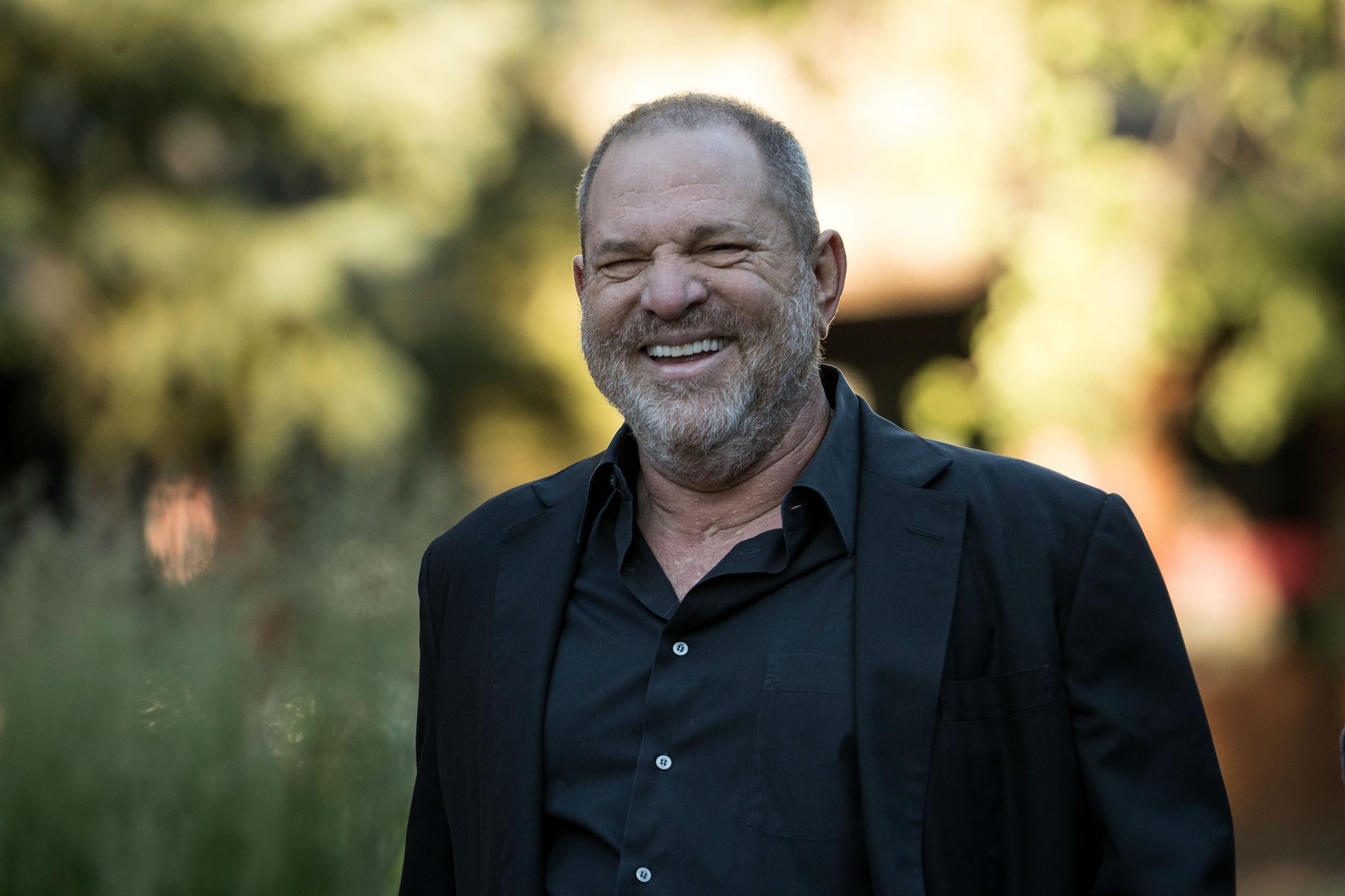Why you shouldn't body-shame Harvey Weinstein
When we agree that some people 'look the sort', those who don't can hide in plain sight and get away with it. My harasser, in turn, used his weight and appearance to manipulate me

Your support helps us to tell the story
From reproductive rights to climate change to Big Tech, The Independent is on the ground when the story is developing. Whether it's investigating the financials of Elon Musk's pro-Trump PAC or producing our latest documentary, 'The A Word', which shines a light on the American women fighting for reproductive rights, we know how important it is to parse out the facts from the messaging.
At such a critical moment in US history, we need reporters on the ground. Your donation allows us to keep sending journalists to speak to both sides of the story.
The Independent is trusted by Americans across the entire political spectrum. And unlike many other quality news outlets, we choose not to lock Americans out of our reporting and analysis with paywalls. We believe quality journalism should be available to everyone, paid for by those who can afford it.
Your support makes all the difference.Does body-shaming Harvey Weinstein warp our perception of sexual predators?
To be clear, I condemn sexual harassment and abuse in all its forms. The allegations made against Weinstein disgust me. But I'll be damned if I'm going to call Weinstein overweight, old and ugly to better express that support.
I can see why my social media feed and Howard Stern (who last week called Weinstein a “big fat guy”, adding: “There is no girl on the planet who wants to see Harvey Weinstein naked and is gonna get aroused”) are full of it. I could see it coming when I read Zoe Brock’s admission that Weinstein cried: “You don’t like me because I’m fat” when she rejected him.
Kate Beckinsale also said, when recounting meeting Weinstein at 17: “I was incredibly naive and young and it did not cross my mind that this older, unattractive man would expect me to have any sexual interest in him.”
Elsewhere, French actress Lea Seydoux alleged: “He [Weinstein] suddenly jumped on me and tried to kiss me. I had to defend myself. He’s big and fat, so I had to be forceful to resist him.”
Meanwhile Italian actress Asia Argentino described her assault as “twisted. A big fat man wanting to eat you. It’s a scary fairytale."
Weinstein is six feet tall – his overbearing physicality is a fact. The victims are right to describe it.
However, beyond this, referencing Weinstein’s weight and appearance – or that of any abuser, attacker or harasser when condemning their behaviour – is irrelevant.
We need to address our language, and consider that Weinstein is becoming the new – that is, the old, the enduring – face and body of sexual misconduct.
By the way, this isn’t about protecting Weinstein’s feelings. I don’t care about his feelings.
Firstly, he’s a body-shamer himself – it's claimed he called British actress Hayley Atwell a “fat pig” – so why stoop to his level? Secondly, I fear such ridicule is empowering to the abuser. It reinforces a sick structure of objectification that affects us all, and women the worst.
My most pertinent encounter as the victim of sexual harassment involved an older, influential man in my industry, a lot of alcohol and him using every trick in the book to get me to be intimate with him. One of these methods involved trying to make me feel sorry for him based on his age, appearance, weight and state of mind. To a degree, he succeeded. The Weinstein scandal makes me view his tools of manipulation in a new light.
Furthermore, if we paint the picture that Weinstein is especially guilty because he “looks the sort”, abusers who don’t can move in plain sight. It allows them to get away with it.
Casey Affleck, Ben Affleck and Johnny Depp are just three of Weinstein’s better-looking contemporaries recently accused of mistreating women whose careers are still relatively intact. This year, Depp’s latest Pirates of the Caribbean movie grossed $794.7m. Could this reality be silencing yet more Hollywood women?
Outside of LA and in the real world – in the workplace, the playground, the street – the misogynistic behaviour of young, everyday men of no power or status is often written off as cute, inevitable, “laddish”. If the man is conventionally attractive, they treat you as if you should be grateful. Why do we let this happen? Is it because we find it easier to condemn the man from the twisted, scary fairytale?
Monsters come in all shapes and sizes, from ogres and teddy bears to movie-star handsome to completely average-looking. The Weinstein scandal is so far mostly focused on one perpetrator, and while the fallout’s been huge, I think the full story is even uglier than we could imagine.
Join our commenting forum
Join thought-provoking conversations, follow other Independent readers and see their replies
Comments